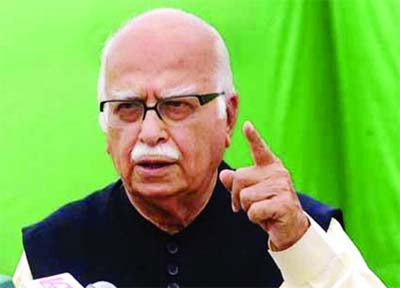It is Information & Broadcasting Minister Manish Tewari, and not BJP leader lK Advani, who got the facts wrong on former bureaucrat MKK Nair. Advani had in his blog quoted extensively from Nair’s autobiography, The Story of an Era Told Without Ill Will, to claim that India’s first Prime Minister Jawaharlal Nehru had described Sardar Patel a “total communalist” when as the Home Minister he had favoured military action to rein in the defiant ruler of Hyderabad after Independence.
Tewari, however, asserted that the BJP leader had got his facts wrong. Tewari claimed that MKK Nair was born on December 29, 1930 and joined the IAS in 1950. “Hyderabad Police Action September 1948. If same Mr Nair, facts do not add up,” Tewari had tweeted. He further said: “IAS found in 1946. If another Mr Nair joined IAS in 1947 post Army stint would he be privy to cabinet discussions at his level in 48, Advaniji.”
But as per Nair’s autobiography, he was born on December 24, 1920 at Thiruvananthapuram. He passed BSc (Physics) from Madras University with first class and first rank in 1939. In 1941, he was selected as a Divisional Accountant in the Travancore Civil Service. It was the highest post a young and brilliant graduate could get during those days. Nair’s intelligence and grasping power came to the notice of Sir CP Ramaswamy Iyer, the then Dewan of Travancore, who took him under his wings.
Nair was one of the first four Indians who were appointed as civilian gazetted officers in the British Army in 1943. It was a job as powerful as the present day-government secretary and his appointment was in Hyderabad. However, in 1947 he quit the planning officer’s post, appeared for the Civil Services Examination and was selected as an IAS probationer.
His tenure in Hyderabad as planning officer of the British Army brought him in acquaintance with close relatives and insiders of the then Nizam of Hyderabad. Every evening, the Nizam’s relatives and friends, the real Nawabs, would assemble in the bachelor’s bungalow of Nair where they gambled and drank Scotch, which was available in plenty from the Army canteen.
“Once they got drunk, the Nawabs spilled the beans about the plans and scheme of things hatched by the British Secret Service and the Nizam for the post-Independence days. I used to alert Sardar Patel about these information by post. After the exchange of a couple of letters, I was asked by the Sardar to meet him during my next trip to New Delhi. The Sardar was happy that all information I sent to him were found to be correct. He issued orders to his staff that I should not be kept waiting whenever I went to his residence. That relation continued till the passing away of the Sardar,” Nair wrote in his autobiography.
By 1947, Nair had developed close friendship with VP Menon, a bureaucrat and close aide of Patel. “My lengthy interactions with MKK Nair convinced me of his honesty, integrity and sincerity. There is no need to disbelieve what he has written,” Jayachandran Nair, who made MKK Nair write his autobiography, told The Pioneer. The autobiography was first serialised in Kalakaumudi Weekly, published by the Kerala Kaumudi group and edited by Jayachandran Nair.
The book published in 1987 was well received by the readers. “Autobiography and history should be written like this. Nair has done an excellent job,” Prof A Sreedhara Menon, eminent historian had told this correspondent.The book also has interesting accounts of how PC Alexander, a young IAS officer from Kerala, was brought to the Centre to save him from the harassment of the political class. Alexander later went on to become the principal secretary to the Prime Minister and Governor of Maharashtra and Tamil Nadu. Alexander described the book as a chronicle of modern India.
Though Nair has given a detailed account of the strained relations between Nehru and Patel, the author has not concealed his admiration and respect for the country’s first PM. He dismissed as ridiculous steamy reports and stories featuring Nehru and some women.

























